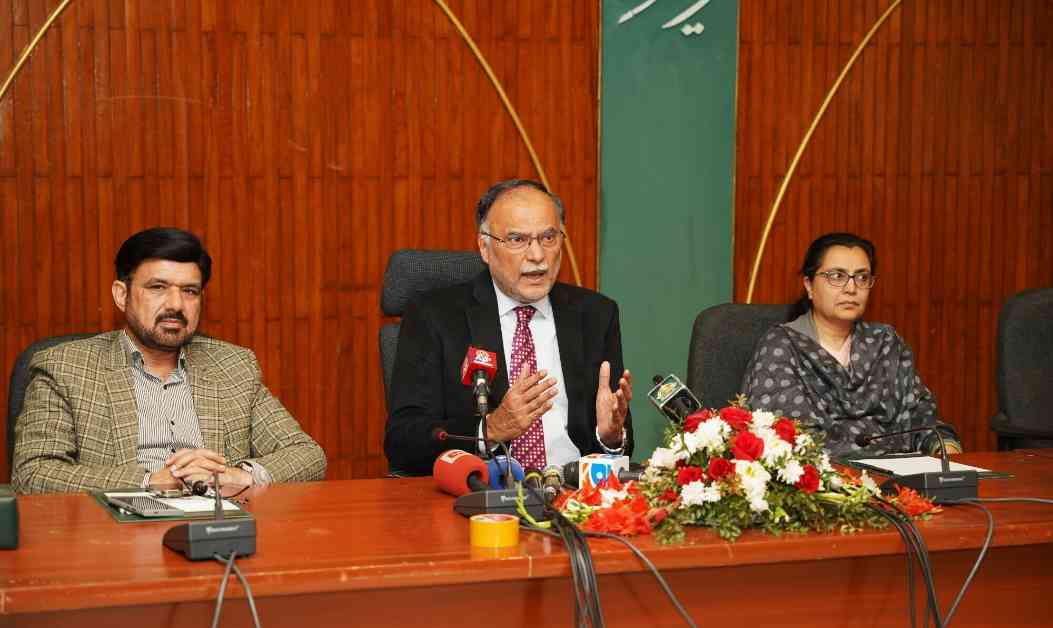Planning Minister Ahsan Iqbal unveiled a groundbreaking economic strategy known as “Uraan Pakistan” during a press conference in Islamabad on Friday. This initiative aims to elevate Pakistan into a $3 trillion economy by 2047, marking a significant milestone in the country’s economic development.
Uraan Pakistan: A Vision for Growth
Iqbal’s plan stands out for its comprehensive approach to address socio-economic challenges, tap into Pakistan’s vast potential, and foster sustainable growth. Unlike previous initiatives that stumbled due to political instability and policy disruptions, “Uraan Pakistan” is designed to withstand such obstacles through a robust implementation mechanism and a collaborative framework that involves all provinces, ministries, and sectors.
Empowering Pakistan’s Youth
One of the key pillars of the plan is leveraging Pakistan’s “youth dividend,” with 65% of the population under the age of 30. By investing in education, skill development, and digital initiatives, the plan aims to empower the youth to steer the country’s economic transformation. Drawing inspiration from successful models in countries like Malaysia, Turkey, and South Korea, Iqbal emphasized that unlocking the potential of the youth is crucial for Pakistan’s progress.
Transformative Strategies and Objectives
With a focus on the 5Es framework – Export, E-Pakistan, Environment and Climate Change, Energy and Infrastructure, and Equity, Ethics, and Empowerment, “Uraan Pakistan” sets ambitious targets across various sectors. From boosting annual exports to $60 billion and expanding the ICT freelancing industry to $5 billion, to enhancing environmental sustainability and social inclusivity, the plan outlines a comprehensive roadmap for economic growth.
Accountability and Collaboration
To ensure effective implementation and accountability, Iqbal highlighted the establishment of the National Economic Transformation Unit (NETU), which will closely monitor progress and adjust strategies as needed. Additionally, the creation of the Pakistan Centennial 2047 Lab aims to foster innovation and collaboration among various stakeholders.
In conclusion, Ahsan Iqbal’s “Uraan Pakistan” plan represents a bold vision for Pakistan’s economic future, emphasizing the collective efforts of all sectors of society to drive growth and prosperity. As the country embarks on this transformative journey, the success of the initiative hinges on a shared commitment to realizing its goals and unlocking Pakistan’s full potential on the global stage.









